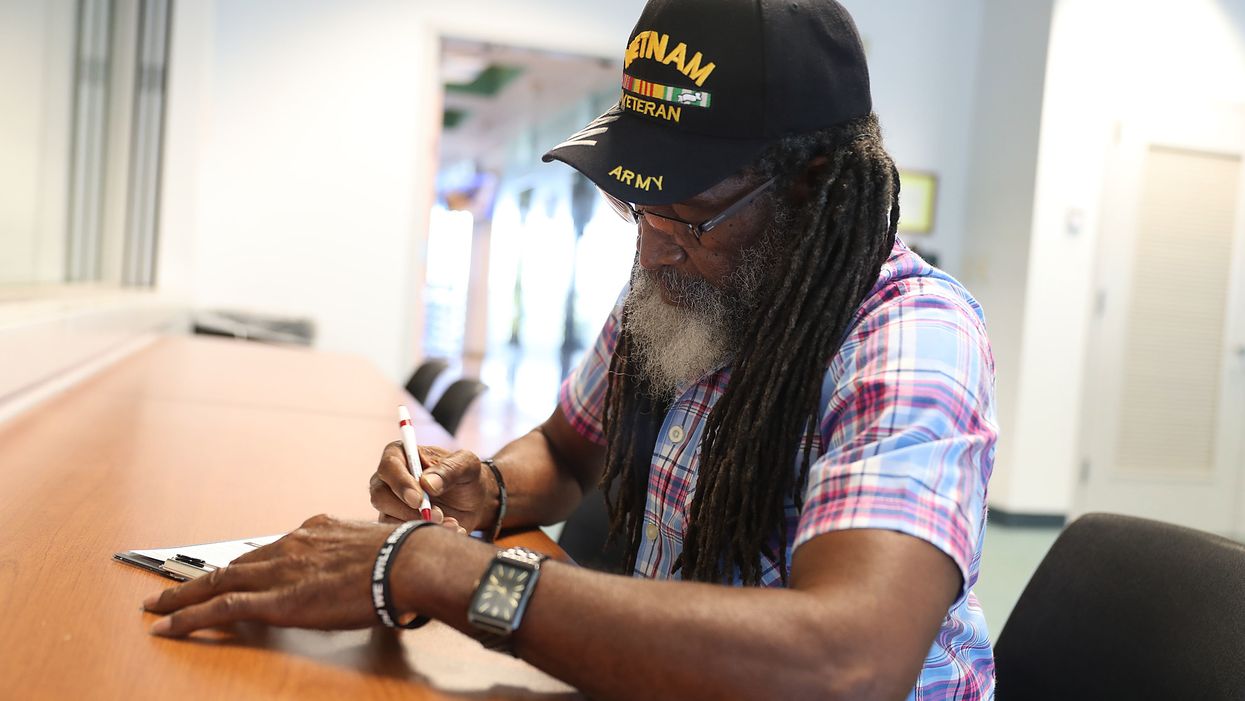A federal appeals court on Wednesday continued to block Florida's new law denying the vote to criminals who have served their time but not made payments that resulted from their convictions.
The decision, by the 11th Circuit Court of Appeals, is symbolically important to the cause of felon voting rights. But it's also quite narrow. It maintains an injunction on enforcement of the law imposed by a federal trial judge, but that ruling only covered the 17 felons who have sued.
As many as 1.4 million other Floridians, as a result, still will not be able to vote March 17 in the Democratic presidential primary, the third-richest delegate prize of the nominating contest.
Besides, the appellate court's ruling came a day after the deadline for registering to vote in that primary.
The next turning point begins April 6, when a federal court opens a hearing in Tallahassee on the merits of the case. That's when a judge will hear arguments that the law — which says felons may resume voting only after paying all fines, court costs and restitution imposed as part of their sentences — amounts to an unconstitutional modern-day poll tax.
The fight stems from how the Republican-run state government decided to implement a state constitutional amendment, adopted in 2018 with almost two-thirds of the vote, that restored the franchise for all Floridians with felony convictions upon completion of their sentences.
Months later, Gov. Ron DeSantis signed legislation written by his GOP colleagues in the Legislature saying that completing a sentence would mean more than release from prison and finishing parole and probation – it also requires fulfilling all monetary obligations.
Civil rights groups and felons affected by the law filed suit, arguing the stipulation disproportionately targeted the poor and people of color. Although the Florida Supreme Court sided with the state, its opinion did not have the force of law, leaving the final decision in the federal court system.
"The long and short of it is that once a state provides an avenue to ending the punishment of disenfranchisement — as the voters of Florida plainly did — it must do so consonant with the principles of equal protection and it may not erect a wealth barrier absent a justification sufficient to overcome heightened scrutiny," the three-judge appeals panel concluded.
The ACLU of Florida, among others, celebrated the decision as a "huge victory for our brave clients!"A spokesman for DeSantis said the state would ask the entire 11th Circuit to reconsider the ruling.




















Marco Rubio is the only adult left in the room